India witnessed a historic occasion as the prestigious Bharat Ratna, the country's highest civilian honor, was bestowed upon five individuals for the first time in history. Indian government never announced five Bharat Ratna awards till now.
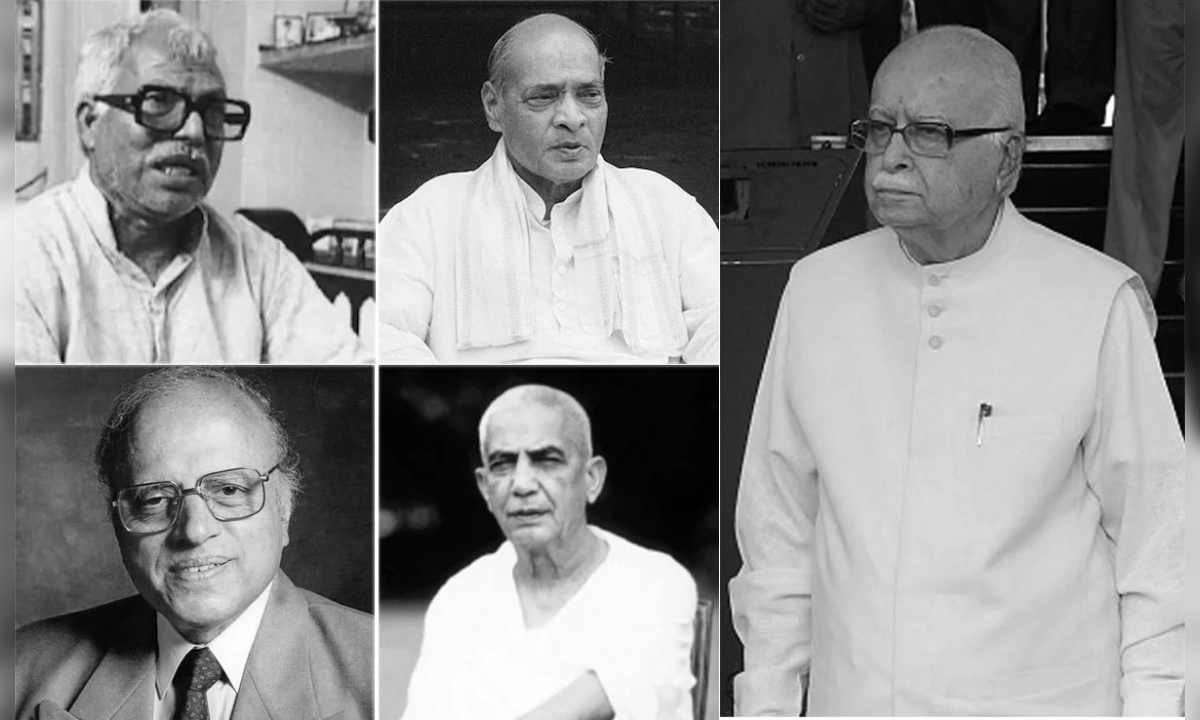
India witnessed a historic occasion as the prestigious Bharat Ratna, the country’s highest civilian honor, was bestowed upon five individuals for the first time in history. Indian government never announced five Bharat Ratna awards till now. This extraordinary decision transcends the usual political and social circles, recognizing a diverse spectrum of contributions that have shaped the nation’s narrative. Each recipient stands as a testament to the multifaceted nature of progress, etching their names in the annals of Indian history.
1. P.V. Narasimha Rao: The Quiet Reformer Who Reshaped India
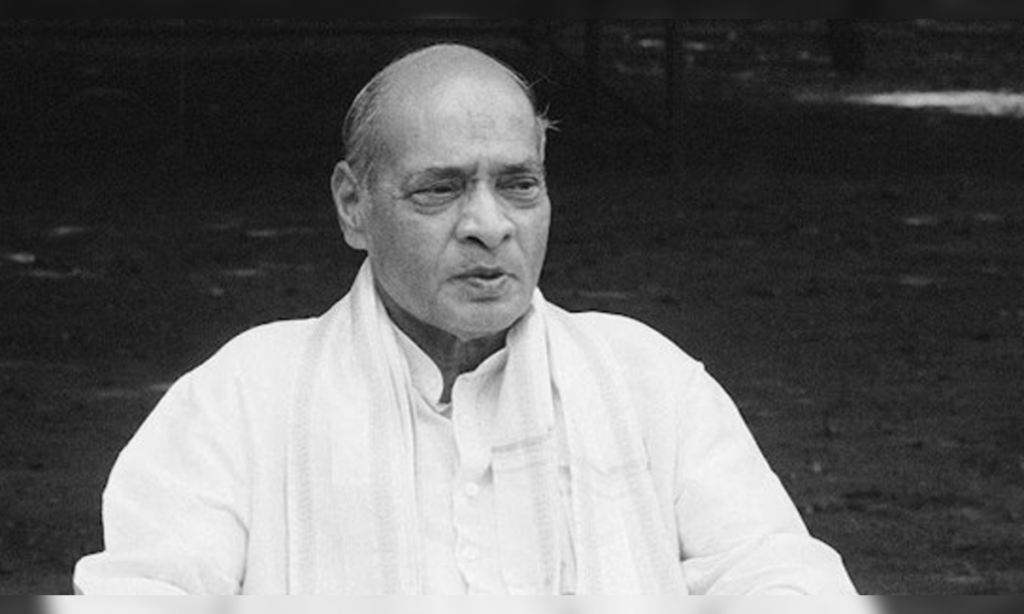
Unassuming yet astute, P.V. Narasimha Rao, India’s 9th Prime Minister, remains a paradox. He steered the nation through a perilous economic crisis, laying the groundwork for its rise as a global power, yet controversy continues to swirl around him. Let’s delve into the life and legacy of this complex leader.
Rao’s journey began in 1921, far from the political limelight. He was a brilliant lawyer, and entered politics. His intellect and efficiency propelling him to Chief Minister of Andhra Pradesh. His pragmatism earned him national recognition.
In 1991, fate thrust him into the Prime Minister’s chair after Rajiv Gandhi’s assassination. Unprepared for the economic crisis he inherited, Rao, the “quiet reformer,” surprised many with his boldness. He dismantled the socialist model, liberalizing industries, controlling inflation, and opening doors to foreign investment.
These reforms, though transformative, were met with resistance. Critics accused him of neglecting the poor and widening inequality. The Babri Masjid demolition further tarnished his image.
However, Rao’s legacy extends beyond economics. He normalized relations with Israel, strengthened ties with the U.S., and initiated the Mandal Commission report, a landmark social justice measure.
Rao was a complex politician, preferring quiet diplomacy over grand pronouncements. His economic reforms, though contested, laid the foundation for India’s economic boom. He faced challenges, made mistakes, but his leadership during a critical juncture remains undeniable.
To truly understand Rao, explore resources like “P.V. Narasimha Rao: The Unknown Prime Minister” and “1991: How P V Narasimha Rao Made History.” By delving deeper, we gain a richer appreciation of his legacy and the lasting impact he has had on India’s trajectory.
2. Chaudhary Charan Singh: Champion of Farmers, Advocate for Social Justice
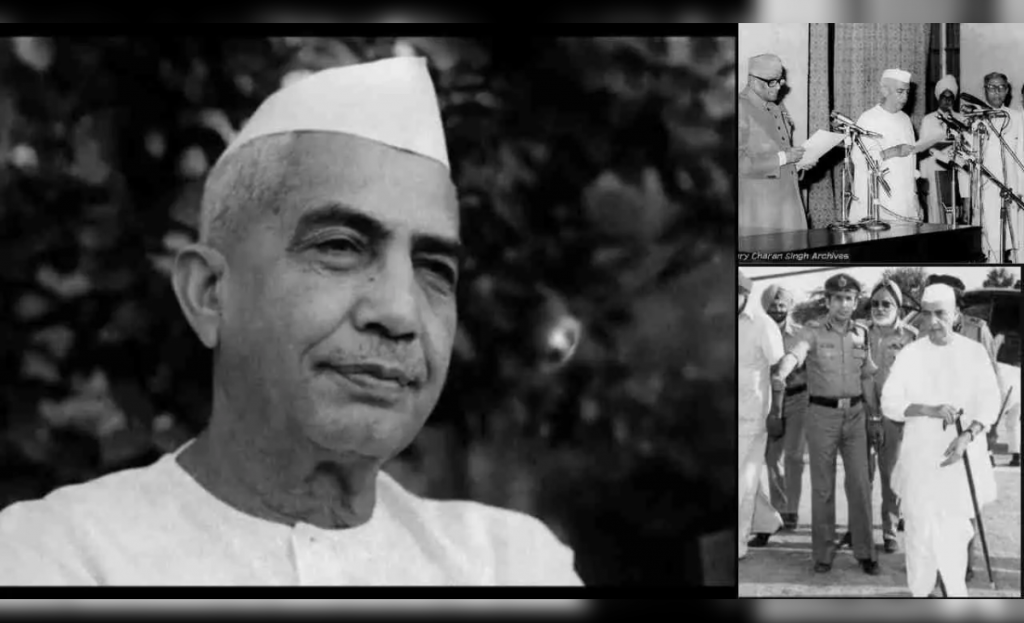
Chaudhary Charan Singh, India’s sixth Prime Minister, was a leader whose legacy is deeply rooted in the soil of rural India. More than just a politician, he was a champion of farmers, a staunch advocate for social justice, and a symbol of hope for the marginalized. His life and work offer a glimpse into the complexities of Indian politics and the enduring struggle for equality.
Born in 1902 into a peasant family in Uttar Pradesh, Singh’s early life instilled in him a deep understanding of the challenges faced by rural communities. He pursued a career in law and later entered politics, rising through the ranks of the Congress party. However, his vision for rural development often clashed with the party’s more urban-centric focus, leading him to form his own party, the Lok Dal.
Singh’s ascent to the Prime Minister’s office in 1979 was a testament to his enduring popularity among farmers. He implemented the “White Revolution,” a series of reforms aimed at boosting milk production and empowering rural communities. This initiative, while facing criticism for its focus on larger farmers, significantly increased India’s milk production and made it self-sufficient in dairy products.
Beyond economics, Singh’s commitment extended to social justice. He championed the cause of backward classes, advocating for their inclusion in political and economic spheres. His tenure saw the implementation of reservations for these communities in educational institutions and government jobs, a move that continues to be debated but undeniably brought marginalized groups closer to the national mainstream.
Singh’s legacy is not without its controversies. His short-lived term as Prime Minister was marred by political instability and economic challenges. His critics point to his perceived populism and his occasional disregard for established norms.
However, despite the complexities, Singh’s commitment to rural development and social justice remains an inspiration. He served as a voice for the voiceless, reminding India of the critical role played by its agricultural communities and the need for inclusive growth. His story reminds us that leadership can emerge from unlikely places, and that even seemingly small changes can have a lasting impact on the lives of millions.
There are many books on this legendary politician, which can give us a glimpse of his ideals and ideologies. Just explore them.
3. M.S. Swaminathan: The Father of the Green Revolution, Feeding Millions
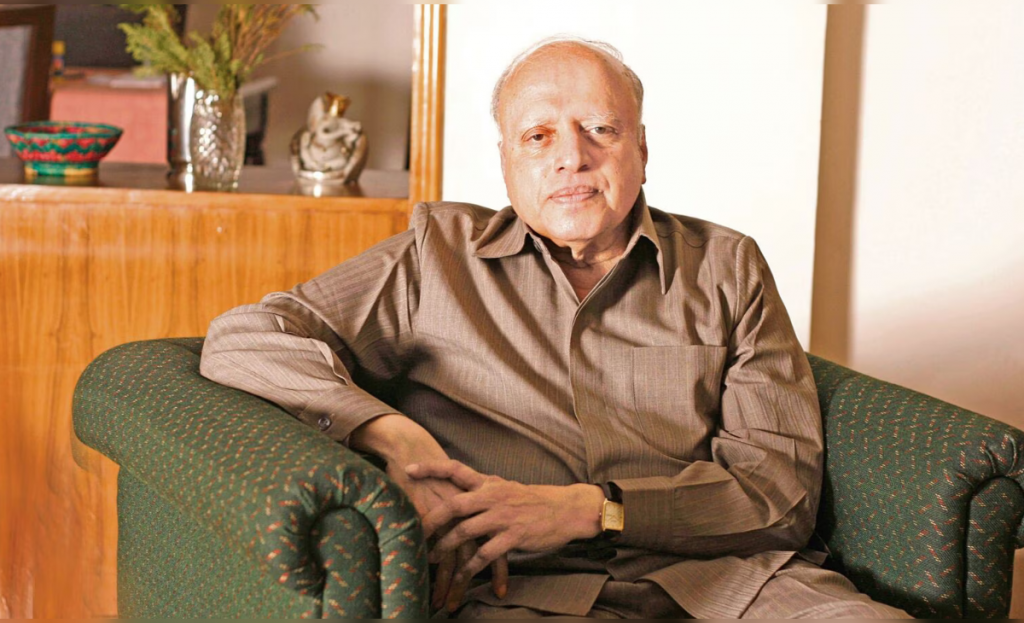
M.S. Swaminathan, often revered as the “Father of the Green Revolution,” is not just a scientist but a national hero credited with transforming India’s agricultural landscape and ensuring food security for millions. His life’s work, a testament to scientific innovation and unwavering dedication, continues to nourish not only the nation but also the world.
Born in 1925, Swaminathan’s early life was steeped in agriculture. He pursued a career in genetics, dedicating himself to understanding and improving crops. His pioneering research on wheat, rice, and potatoes, focusing on areas like cytogenetics and radiation sensitivity, paved the way for revolutionary discoveries.
In the 1960s, India faced a looming food crisis. Recognizing the urgency, Swaminathan spearheaded the adoption of high-yielding varieties (HYVs) of wheat and rice, developed by international research institutions. These seeds, combined with practices like irrigation and fertilizers, significantly increased food production, transforming India from a food-deficit nation to a self-sufficient one.
The Green Revolution, however, wasn’t without its critics. Concerns about environmental degradation, favoring large farmers, and neglecting traditional crops emerged. Swaminathan, acknowledging these challenges, tirelessly advocated for sustainable practices, integrated pest management, and support for small farmers. He championed biodiversity conservation and promoted “evergreen revolution,” focusing on ecological sustainability and nutritional security.
Swaminathan’s impact transcended India. He actively shared his knowledge and expertise with other developing countries, helping them achieve food security. His commitment to global development earned him numerous accolades, including the World Food Prize in 1987.
Beyond science, Swaminathan’s passion extended to social justice. He advocated for women’s empowerment in agriculture, recognizing their crucial role in food production and rural development. He actively engaged in public discourse, urging policy changes and advocating for sustainable food systems.
M.S. Swaminathan’s legacy is as vibrant as the fields he revolutionized. He is more than just a scientist; he is a symbol of hope, a champion of the underprivileged, and a tireless advocate for a world free from hunger. His story reminds us of the power of science, the importance of innovation, and the enduring impact of individuals who dedicate their lives to improving the lives of others.
There are books like “M.S. Swaminathan: The Father of the Green Revolution”, and many other documentaries on this legendary figure to further explore his driving force.
4. Karpoori Thakur: The Jannayak Who Championed the Poor
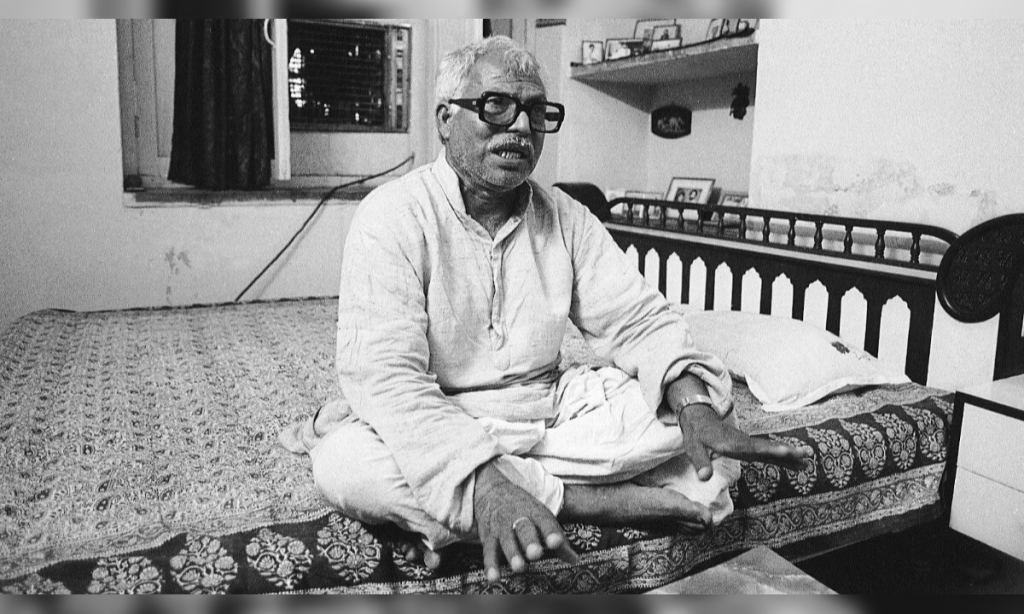
Karpoori Thakur, often referred to as “Jannayak” (people’s leader), was a towering figure in Bihar politics. Born in 1924 into a poor family, he dedicated his life to fighting for the rights of the marginalized and downtrodden. His legacy, marked by his unwavering commitment to social justice and his unassuming demeanor, continues to inspire generations of activists and politicians.
Thakur’s early life was marked by hardship and discrimination. He faced challenges due to his caste and economic background, which instilled in him a deep empathy for the poor and oppressed. He joined the freedom struggle at a young age, participating in the Quit India Movement and spending time in prison.
After independence, Thakur entered politics, joining the socialist movement. He quickly rose through the ranks, becoming the Chief Minister of Bihar twice, in 1970 and 1977. His tenure was marked by bold reforms aimed at uplifting the poor and marginalized. He implemented land reforms, increased minimum wages, and expanded access to education and healthcare.
Thakur’s commitment to social justice was evident in his policies. He introduced the “Bihar Scheduled Castes and Scheduled Tribes Land Restoration Act,” which aimed to restore land to Dalits who had been illegally dispossessed. He also implemented the “Bihar Minimum Wages Act,” which increased the minimum wage for agricultural laborers.
Thakur’s leadership was not without challenges. He faced opposition from powerful vested interests who resisted his reforms. He also faced criticism for his populist policies, which some argued were not sustainable in the long run.
Despite the challenges, Thakur’s legacy remains an inspiration. He is remembered as a champion of the poor and a symbol of hope for those seeking a more just and equitable society. His life and work remind us of the power of one individual to make a difference in the lives of millions.
We have access to many books and documentaries on this Jananayak. Another interesting fact about Karpoori Thakur is, he was the mentor of Bihar former CM Lalu Prasad Yadav and current CM Nitish Kumar. They both want to claim Karpoori Thakur’s legacy as their own.
5. L.K. Advani: A Life at the Forefront of Indian Politics
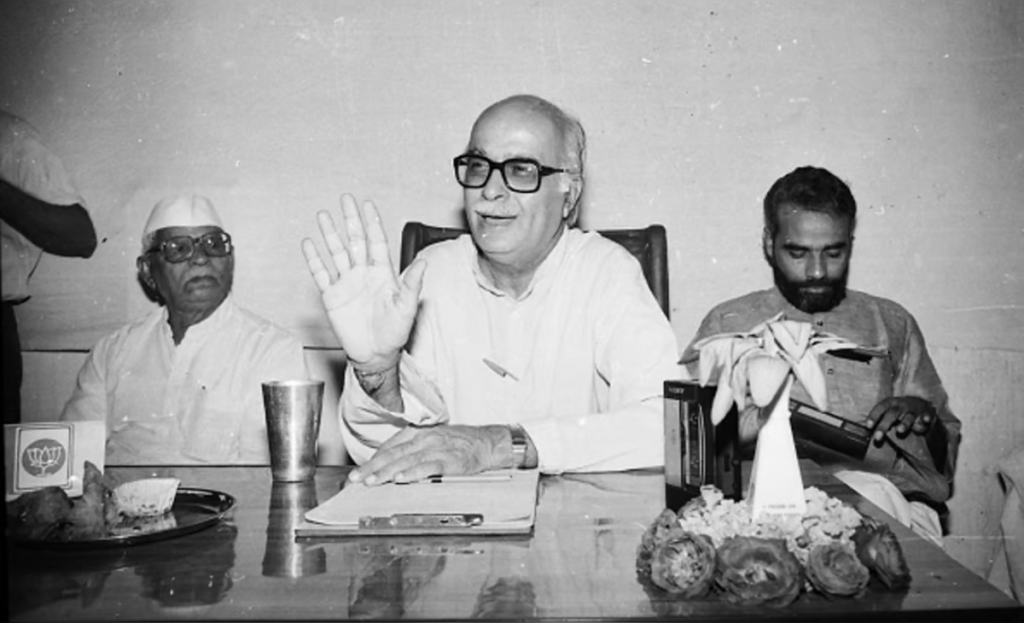
Lal Krishna Advani, born in 1927, is a towering figure in Indian politics. A co-founder of the Bharatiya Janata Party (BJP) and a former Deputy Prime Minister of India, his life and career have been intricately linked with the evolution of India’s political landscape. He remains a controversial figure, admired by some and criticized by others, but his impact on Indian politics cannot be denied.
Advani’s early life was shaped by his association with the Rashtriya Swayamsevak Sangh (RSS), a Hindu nationalist organization. He joined the RSS at a young age, imbibing its ideology of Hindu nationalism. This ideology would become a defining force in his political career.
After studying law, Advani entered active politics during the Quit India Movement. He rose through the ranks of the Jana Sangh, the political arm of the RSS. In 1980, he co-founded the BJP, aiming to present a more moderate face of Hindu nationalism.
BJP’s rise under Advani’s leadership was marked by several key moments:
Ram Rath Yatra (1990): Advani’s chariot tour across India to mobilize support for the construction of a Ram temple in Ayodhya sparked religious tensions and culminated in the demolition of the Babri Masjid, leading to widespread riots. This event remains a defining controversy in Advani’s career.
Gujarat Riots (2002): As Home Minister during the 2002 Gujarat riots, Advani’s role was criticized for failing to prevent widespread violence against Muslims. This further cemented his image as a polarizing figure.
Deputy Prime Minister (1999-2004): Under Prime Minister Atal Bihari Vajpayee, Advani played a key role in shaping the BJP’s economic policies and foreign relations. He was seen as a potential successor to Vajpayee but ultimately lost the 2004 general election.
Advani’s legacy extends beyond his political career. He is a prolific writer, having authored several books on Indian history and politics. He remains active in political discourse, although not holding any official positions.
L.K. Advani’s life and career are marked by both achievements and controversies. His contribution to the rise of the BJP and his role in shaping India’s economic and foreign policies are undeniable. However, his association with Hindu nationalism, particularly the events surrounding the Ram Rath Yatra and the Gujarat riots, continue to cast a shadow over his legacy.
L.K. Advani wrote an autobiography named “My Journey, My Life”, and there were mentions of him in Sanjaya Baru’s “The Accidental Prime Minister”. We can even get a glimpse of his eventful journey in the BJP website, and Parliament of India website.

